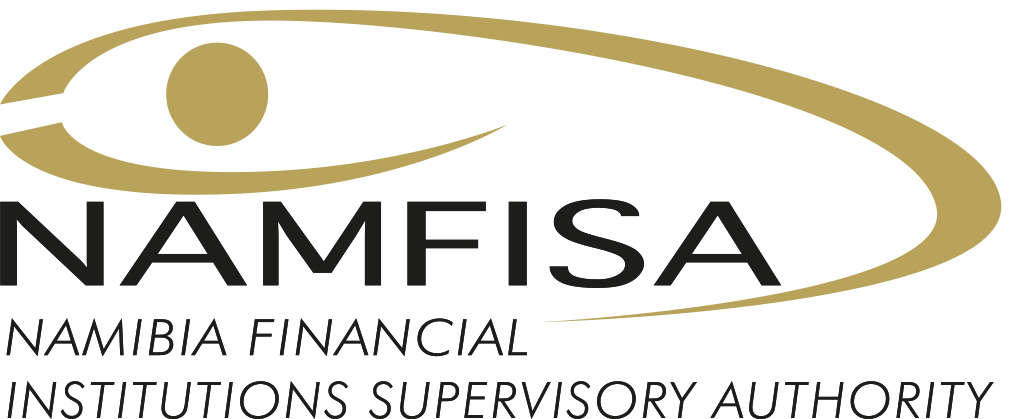HELPING NAMIBIANS PLAN FOR LIFE EVENTS
Friendly Societies are member-focused organisa-tions that help Namibians to become financially in-dependent and plan for life events through the provi-sion of savings, investment and insurance products. These include education savings plans, health, granting of annuities, provision of a sum of money upon a member leaving employment due to various reasons such as dismissal and resignation, mainte-nance of members in distressed circumstances, and funeral plans.
All Friendly Societies are regulated by the Na-mibia Financial Institutions Supervisory Authority. Friendly Societies are subject to prudential regula-tion to safeguard the financial interests of the mem-bers and secure the benefits promised to the mem-bers. Friendly Societies are registered under the Friendly Societies Act No. 25 of 1956.
PLANNING FOR THE FUTURE
Friendly Societies help individuals and their fami-lies prepare for a range of life events, such as educa-tion and training, funeral and retirement.
Friendly Societies offer a range of products – rang-ing from education, saving plans, funeral plans, income plans, etc – to allow individuals and their families to plan for the future with confidence.
In a Friendly Society arrangement, members typi-cally pay a regular membership fee and hold regu-lar meetings. If, for example, the Friendly Society’s objective is to cover medical costs, and a member or beneficiary become sick, they would normally re-ceive an allowance to help them meet their financial obligations, or if the Friendly Society’s objective is to cover funeral costs, when a member dies, the ben-eficiaries will receive an allowance to cover funeral costs of the deceased member.
The membership fees and investments made by Friendly Societies are managed by the managing committee of the Society to give the members ben-efits in time of need. Pensions, sickness payments and marriage and death grants are all benefits that could be offered by Friendly Societies.
In order to register a Friendly Society, the grouping involved must draw up a set of rules governing the operation of the Society. The rules must, according to the class in which the Society is to be registered, as a minimum contain the matters to be provided for in terms of Section 13 of the Friendly Societies Act, 1956.
WHY TAKE A FRIENDLY SOCIETY APPROACH?
Friendly Societies came to prominence in the 19th century. They are a way for people to band together and offer each other financial help and assistance in the absence of support from the welfare state. Al-though the state has increasingly provided help in terms of provision for health care, medical care, education and social grants, these are not enough to meet the increasing demand and there is, therefore,a need to complement this effort through the forma-tion of Friendly Societies.
In addition, Friendly Societies are owned, managed and run solely for the benefit of the members. There are no shareholders to pay dividends to and there-fore all the benefits belong to the members of the Society.
WHAT ARE THE RISKS
Friendly Societies do face the same risks as many other investments, such as fluctuations to some ex-tent with the state of investment markets and there-fore, like most investment products, the investment return is not guaranteed.
Summary
Helping Namibians Plan for Life Events
Understanding Friendly SocietiesFriendly Societies are member-driven organisations that support Namibians in becoming financially independent by helping them prepare for key life events. These Societies offer a range of financial products such as:
- Education savings plans
- Health and medical assistance
- Retirement and annuity benefits
- Financial support during unemployment (resignation, dismissal, etc.)
- Support during times of distress
- Funeral cover
Friendly Societies are regulated by NAMFISA (the Namibia Financial Institutions Supervisory Authority) under the Friendly Societies Act, No. 25 of 1956, and are subject to prudential rules to protect member contributions and ensure promised benefits are delivered.
Planning for the Future
Friendly Societies empower individuals and families to prepare for important life milestones. Their offerings may include:
- Funeral plans
- Income or annuity plans
- Savings and investment products
- Assistance for medical costs
- Educational savings
Members contribute regular fees and typically meet periodically. The managing committee of each Friendly Society oversees the funds and ensures they are used to benefit members—whether through pension payouts, sickness benefits, marriage or death grants.
For instance:
If a Society’s aim is medical support, a sick member may receive financial assistance. If the focus is funeral support, the deceased member’s beneficiaries receive funds to help cover funeral expenses.
For instance:
If a Society’s aim is medical support, a sick member may receive financial assistance. If the focus is funeral support, the deceased member’s beneficiaries receive funds to help cover funeral expenses.
Why Choose the Friendly Society Model?
Friendly Societies originated in the 19th century as a way for communities to support one another in times of need—before the establishment of modern social welfare systems. Today, they still serve a vital role by complementing government services, which may not always fully meet every citizen’s financial needs.
Key Benefits:
- Member-owned and member-run
- No shareholders – all benefits go to members
- Community-based support system
- Affordable and collective approach to saving and insurance
How to Start a Friendly Society
To register a Friendly Society in Namibia:
- A group must draft a formal set of rules, in accordance with Section 13 of the Friendly Societies Act.
- The rules must specify the Society’s objectives, membership criteria, benefit structures, and governance procedures.
- The rules vary depending on the class of Society (e.g., medical, funeral, savings).
Risks to Consider
Like other financial instruments, Friendly Societies may face risks such as:
- Market fluctuations – which can impact investment returns
- Non-guaranteed benefits – as returns may vary depending on fund performance
It is important to fully understand the rules, obligations, and risks before joining or forming a Friendly Society.
